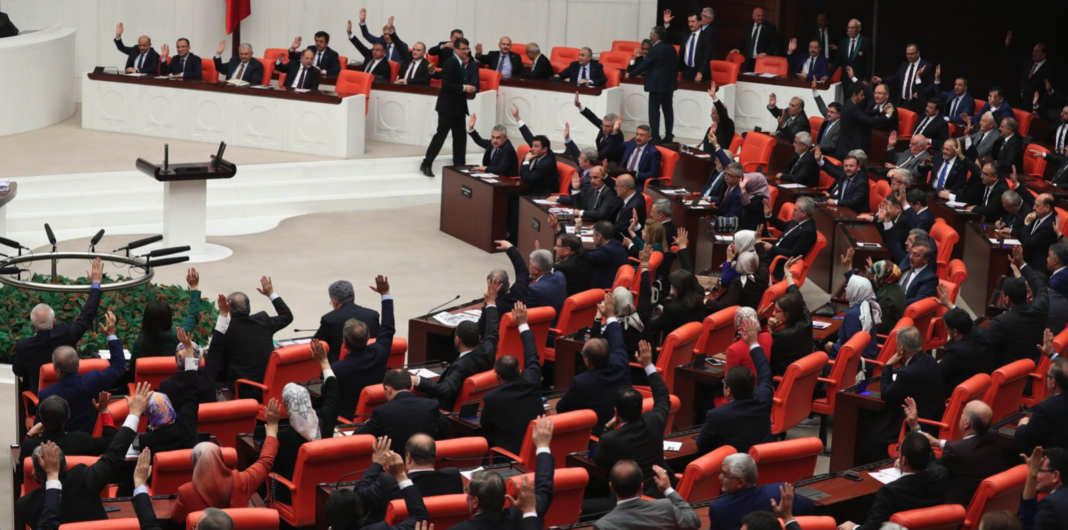While it could be risky to use their economic and diplomatic power to benefit the opposition, they can and should act to prevent other nations from meddling. By Borzou Daragahi, Independent, on March 12, 2023.
ust a few weeks before the 14 May elections that could decide the future course of Turkey, president Recep Tayyip Erdogan received a ringing endorsement. On 6 March, the same day Turkey’s opposition announced its candidate against Erdogan, Saudi Arabia deposited $5bn (£4bn) in Turkey’s Central Bank, helping to stabilise the country’s currency.
The cash provides little direct relief for those still sheltering in tents and suffering from the impact of Turkey’s devastating 6 February earthquakes. But it does help reduce the bills of government-connected companies with foreign debts, and staves off the impact of Erdogan’s controversial low-interest policies. It raises eyebrows and concerns that the Saudi leadership under Crown Prince Mohammed bin Salman (MBS) is pushing for an Erdogan election win over the opposition led by Kemal Kilicdaroglu.
“Guess we now know who MBS wants to win the Turkish election,” Timothy Ash, an investment analyst at London-based BlueBay Asset Management, wrote in a note. “Notable that Saudi lending to Turkey comes with no strings attached.”
Saudi Arabia is not alone. A coalition of autocratic countries appear to be rallying around Turkey’s president ahead of the vote. According to Foreign Policy, “Russia has propped up Turkey’s economy with huge inflows of capital” over the last year. While much of Europe shivered this weekend, Turks enjoyed relatively cheap gas supplied by Russia. Erdogan is now trying to wrestle more gas discounts from Russian president Vladimir Putin and postpone payments until after the elections.
The United Arab Emirates on 3 March signed a $40bn five-year trade deal with Erdogan’s Turkey that may very well further open the purse strings of Arabian Peninsula oligarchs and draw much-needed investment to the country.
Turkey has just suffered a once-in-a-millennium disaster and desperately needs any outside help it can get. But that help should not be designed in a way that could even be perceived as benefiting the government in upcoming elections. It need not be. On 9 March, for example, the European Bank for Reconstruction and Development pledged €1.5bn (£1.3bn) in quake-hit regions of the country over the next two years.
Even Qatar, a strong ally of Erdogan, has so far refrained from offering the government quick cash to prop up the country’s economy and instead donated 10,000 mobile housing units used in the World Cup to provide shelter for earthquake victims. Such help benefits Turks without offering either Erdogan or his opponents a boost.
It is not hard to understand why Russia, Saudi Arabia and the UAE would opt to support Erdogan. They are pursuing their interests. For one thing, authoritarian leaders around the world tend to stick together and back each other on the global stage against democratic powers.
Erdogan is also the devil they know. Moscow, Riyadh and Abu Dhabi have each sparred with Erdogan over the years. Relations with Russia collapsed after Turkey downed a fighter jet in 2015. Saudi slashed economic ties with Turkey after Erdogan accused the crown prince of being behind the killing of journalist Jamal Khashoggi in 2018. Turkey and the UAE found themselves on opposite sides of the war in Libya.
But all managed to patch up ties and rebuild relations with an Erdogan government known for its pragmatism.
A future government in Ankara under the opposition could be more unpredictable. Kilidaroglu’s foreign policy principles have yet to be fully spelled out but he, his Republican People’s Party, his six-party coalition and their supporters have long been suspicious of Erdogan’s embrace of Turkey’s Middle East ties and his “Eurasian” focus on Russia and China. They will without a doubt be more pro-European than Erdogan.
The UK, US and the European Union also have a tremendous interest in the outcome of the 14 May elections. Turkey is a Nato member and a major UK and EU trading partner, with transfers of goods and services totaling about $125bn annually. Turkey is as much a part of Europe as it is the Middle East, and Turks are the largest or among the largest minority populations of Germany, the Netherlands and Belgium.
Turkey’s Erdogan has become a symbol of the brand of right-leaning populism epitomised by America’s Donald Trump, Hungary’s Viktor Orban and Brazil’s Javier Bolsonaro. Western democracies have an interest in seeing a more like-minded government come to power in Ankara.
Blatant Western interference in Turkey’s elections could backfire. Even as Erdogan eagerly accepts Russian and Gulf cash, he and his media allies quickly accuse any opposition figures who appear alongside a Western official of being a foreign dupe.
But there are other tools that can be used to create a more level playing field ahead of 14 March. Western leaders have little leverage over Russia but they can discourage the Gulf partners to whom they sell weapons to stop trying to tip the scales in favour of Erdogan.
The West also still has leverage over Erdogan. In recent weeks, the EU has begun cracking down on countries that continue to do business with Russia. EU foreign policy chief Josep Borrell has begun reading countries like Hungary, Georgia and Turkey the riot act, warning them of punitive action should they continue to allow themselves and their ports to be used for the transfer of sanctioned goods to and from Russia. On 10 March Turkey acted, barring Russia from using it as a transit hub for imports, according to Bloomberg.
Western powers have a major stake in Turkey’s upcoming elections. While it could be risky to use their economic and diplomatic power to benefit the opposition, they can and should act to prevent other nations from meddling.

